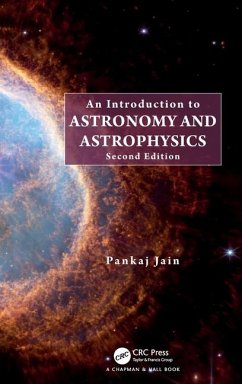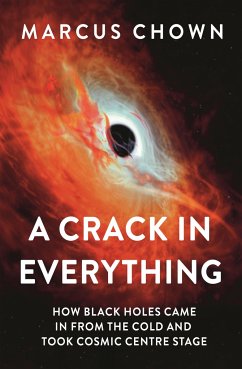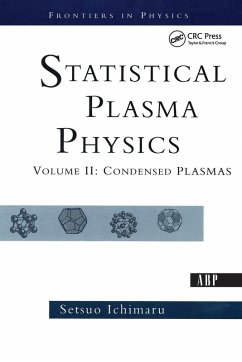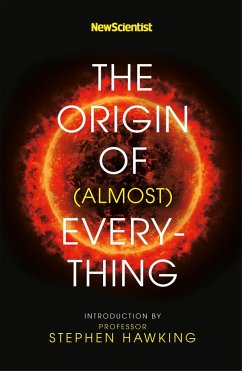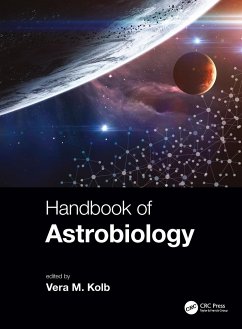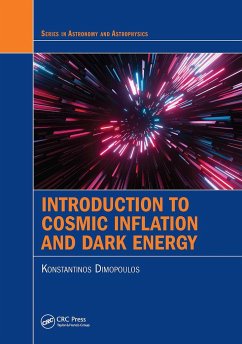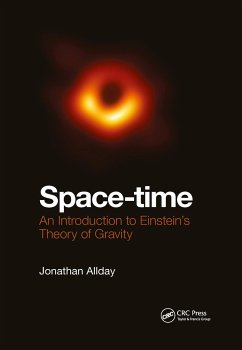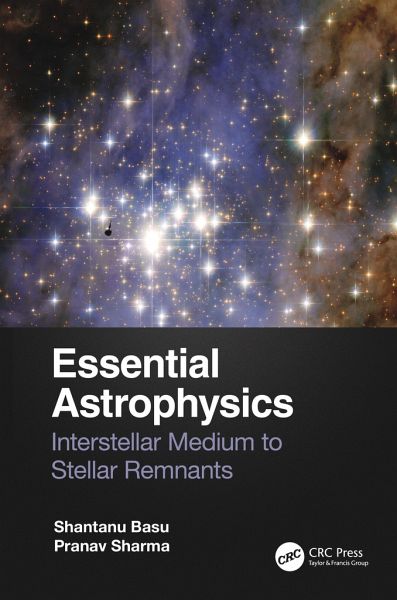
Essential Astrophysics
Interstellar Medium to Stellar Remnants
Versandkostenfrei!
Versandfertig in 6-10 Tagen
51,99 €
inkl. MwSt.
Weitere Ausgaben:

PAYBACK Punkte
26 °P sammeln!
This book takes a reader on a tour of astronomical phenomena: from the vastness of the interstellar medium, to the formation and evolution of stars and planetary systems, through to white dwarfs, neutron stars, and black holes, the final objects of the stellar graveyard. At its heart, this book is a journey through the evolutionary history of the birth, life, and death of stars, but detours are also made to other related interesting topics.This highly accessible story of the observed contents of our Galaxy includes intuitive explanations, informative diagrams, and basic equations, as needed. I...
This book takes a reader on a tour of astronomical phenomena: from the vastness of the interstellar medium, to the formation and evolution of stars and planetary systems, through to white dwarfs, neutron stars, and black holes, the final objects of the stellar graveyard. At its heart, this book is a journey through the evolutionary history of the birth, life, and death of stars, but detours are also made to other related interesting topics.
This highly accessible story of the observed contents of our Galaxy includes intuitive explanations, informative diagrams, and basic equations, as needed. It is an ideal guide for undergraduates with some physics and mathematics background who are studying astronomy and astrophysics. It is also accessible to interested laypeople, thanks to its limited equations.
Key features:
Includes coverage of some of the latest exciting research from the field, including star formation, exoplanets, and black holes
Can be utilised as a stand-alone textbook for a one-term course or as a supplementary textbook for a more comprehensive course on astronomy and astrophysics
Authored by a team respected for research, education, and outreach
Shantanu Basu is an astrophysicist and a professor at The University of Western Ontario, Canada. He is known for research contributions on the formation of gravitationally-collapsed objects in the universe: stars, planets, brown dwarfs, and supermassive black holes. He is one of the originators of the migrating embryo scenario of episodic accretion onto young stars. He has been recognized for his teaching excellence and his contributions to the astronomical community include organizing many conferences and training schools.
Pranav Sharma is an astronomer and science historian known for his work on the history of the Indian Space Program. He has curated the Space Museum at the B. M. Birla Science Centre (Hyderabad, India). He is in-charge of the history of Indo-French scientific partnership project supported by the Embassy of France in India. He is a national-award-winning science communicator and has extensively worked on the popularization of astronomy education in India.
This highly accessible story of the observed contents of our Galaxy includes intuitive explanations, informative diagrams, and basic equations, as needed. It is an ideal guide for undergraduates with some physics and mathematics background who are studying astronomy and astrophysics. It is also accessible to interested laypeople, thanks to its limited equations.
Key features:
Includes coverage of some of the latest exciting research from the field, including star formation, exoplanets, and black holes
Can be utilised as a stand-alone textbook for a one-term course or as a supplementary textbook for a more comprehensive course on astronomy and astrophysics
Authored by a team respected for research, education, and outreach
Shantanu Basu is an astrophysicist and a professor at The University of Western Ontario, Canada. He is known for research contributions on the formation of gravitationally-collapsed objects in the universe: stars, planets, brown dwarfs, and supermassive black holes. He is one of the originators of the migrating embryo scenario of episodic accretion onto young stars. He has been recognized for his teaching excellence and his contributions to the astronomical community include organizing many conferences and training schools.
Pranav Sharma is an astronomer and science historian known for his work on the history of the Indian Space Program. He has curated the Space Museum at the B. M. Birla Science Centre (Hyderabad, India). He is in-charge of the history of Indo-French scientific partnership project supported by the Embassy of France in India. He is a national-award-winning science communicator and has extensively worked on the popularization of astronomy education in India.





